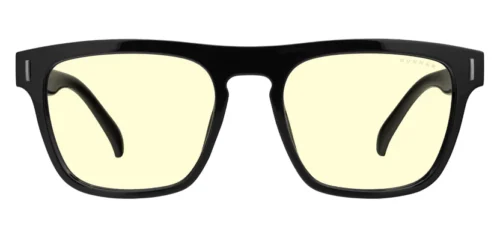Early Adoption, Information Overload and I Want it Now!
A couple weeks ago Google revealed their plans to bring the immediacy and availability of the internet mere centimeters from your face. The last few decades of technological advancement have created a demand for such a product, not just in the technology sense but in the sense of impatience and immediacy. Through many facets of society, we have become slaves to data and how easily we can access it, but is this a detriment to society as a whole or are we just getting started?
While one can make the argument that the need for the latest and greatest technology started with the personal computer, based on the cost this wasn’t possible for many people who wanted to be early adopters. You see, it’s the early adopters that have contributed to a constant stream of product advancements and upgrades. Every version that has been improved upon and every step forward is because of the diligence of people willing to possibly purchase a defective first run product.
This might just be my opinion (based on the speed and availability of mass marketed products) but early tech adoption started with the VCR in the 1970’s. Record players have generally always been record players, but the video recording device was one of the first consumer devices (outside the personal computer) that continuously evolved, creating a constant need and yearning for the latest and greatest. Early adopters were quick to latch on to the VCR and push evolution.
Not that tech companies wouldn’t have evolved without early adopters that is. Though outside of the porn industry (forcing BETA and HD/DVD out of the market) early adopters have been the driving force behind changes in tech. Those folks waiting in line overnight for the latest and greatest have influenced change for sure. The thing is, today there are many more early adopters than ever before thanks to lower product costs. A $500 phone is much more reasonable than a $2,087 VCR (original market price in 1972 of a Phillips N1500).
Yet, I’m sure plenty of early adopters had to have that VCR and got it. Because sometimes, it’s not just about the money. As reporter/podcaster BJ Nemeth pointed out to me, “waiting for tech to become mainstream feels too passive. By being an early adopter, you get a first-hand glimpse of the future. By getting & using tech early, you become an expert by the time it’s mainstream.”
Early adopters themselves admit that it’s not just about having the latest tech product, it’s about contributing to that tech evolution. Says Kevin Makice, Systems Analyst at Indiana University Bloomington, “Early adoption is more about helping test and explore than making my life better. The more it does manage to improve my life, however, the more fondly I’ll look back at the decision to jump in early. When something bad happens (e.g., a lemon Apple laptop I got directly off the line), it is probably weighted more than when something good happens (e.g., Tivo), in terms of affecting future behavior.”
One of the fallacies of early adoption is sometimes, it backfires. That’s the price many early adopters pay, such as Wired.com GeekDad Dave Banks, who claims “gear lust” as his motivation for buying the latest and greatest. He’s learned (but doesn’t care) that first run products don’t always work the best. “Often times, it’s worse compared to later releases. But it doesn’t matter. To channel Veruca Salt, I want it now.”
Yet, NASA Engineer Brian McLaughlin makes early adoption sound terribly romantic, “I usually like to get ‘it’ the first day because I enjoy the discovery. When I find a quirk, I enjoy that moment. Particularly when it is something that you can really dig in with and get to know. I can’t wait to get my Raspberry Pi (even though it is in the wild already, I’m getting it as soon as I can) so that I can dig around its internals. I am also usually the go to person for many family and friends for tech support so by having the latest/greatest, I can keep ahead of their questions.”
So early adopters have helped to create a society of people who want their tech and their data as soon as humanly possible. Many advertisers today have caught on to this trend, for instance; claiming their cell network can provide data pretty much prior to it being requested (AT&T). While we may not all be early adopters, we all want it now, no matter what it is, as long as we have it. However, as some advertisers have also pointed out (Bing) we may be on information overload.
We have products like iPhones’ SIRI that answers our immediate questions without having to look it up. We have the internet and all the world’s information in the palm of our hands with today’s smart phones. So can we handle all this information, all this trivial and required data without frying our brains? Apparently, according to a 2009 report by the University of California, San Diego, Americans on average consume over 34GB of data daily, including a massive 100,000 words a day through the internet, TV, text, radio, video games, and so on. The below chart illustrates the division of attention.
We are consuming all this data, but how much of it is really worth the consumption? And are we getting smarter or dumber for it? That’s the million dollar question for sure. Since 45% of consumption is television, unless you are watching educational TV, that 45% is basically being wasted. The thing about all the data consumption, no matter how it affects our brains, is that it is all on demand. We no longer have to wait for the evening news for the days activities, we can get it now, creating a false sense of immediacy and an impatience for the rest of the world at large, for the things we cannot control. The other caveat is – do we really need it now?
Take the recent release of Diablo 3 as a prime example of when early adopting goes bad. When the roughly 1 million early purchasers (most of them pre-orders) logged in at midnight on Tuesday they got this: “The servers are busy at this time. Please try again later. (Error 37)”. It would be more than an hour before it would finally come back up, but let’s go with that first hour. One million users, one million wasted hours. Was it worth it, taking a day off work? Or would have waiting a day really been detrimental to your gaming experience?
This attitude of wanting it now has even worked its way into politics, creating a nation full of people who vote the way they consume data, with an irrational need to get immediate results, whether or not it actually works that way. Just to be clear, nothing about politics or the system surrounding it is anywhere close to immediate. Yet, we don’t seem to care. We want it now dammit, just like we get our restaurant reviews on Yelp.
It’s quite clear that tech manufacturers have taken advantage of this general attitude as well, Apple being a clear example of that, releasing a new iPad and iPhone every year with advancements that still lag behind most other similar devices.
If anyone can bring us tomorrows information, tomorrows technology today – it’s going to be the early adopters. The ones with the tech in their hands before us, making improvements & pushing the systems to its working boundaries. Take Apple as an example again, consumers saw the announcment of the first iPhone coming, but it was early adopters who saw Apple announce their software development kit and figured out how groundbreaking the iPhone was truly going to be.
One of two things are going to happen in the immediate future. Either we truly are going to have information and technology overload and our little human brains will explode from all the data collection, or having it now won’t be good enough. We’ll want tomorrows information today. That might sound a bit like science fiction, but then, so does having the internet in your glasses
How do you feel about it? Are you an early adopter? Are you on information overload?
Header image credit: Bryant Figueroa
Graph image credit: HMI Report/UC San Diego – A graph from the report illustrating the dissection of words consumed each day.








There are no reviews yet.